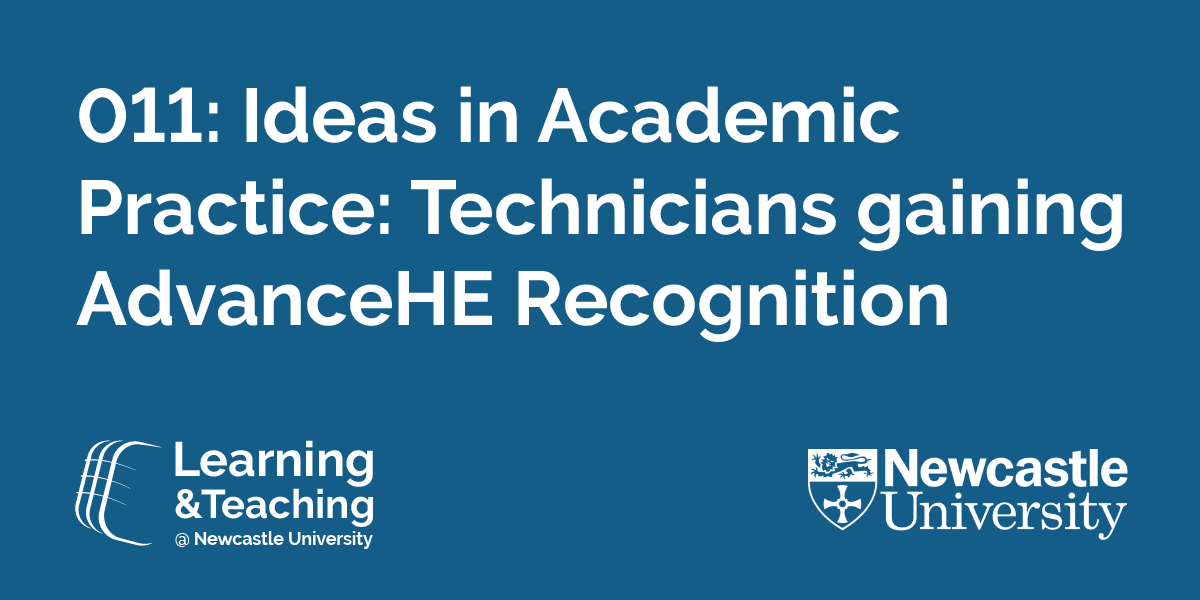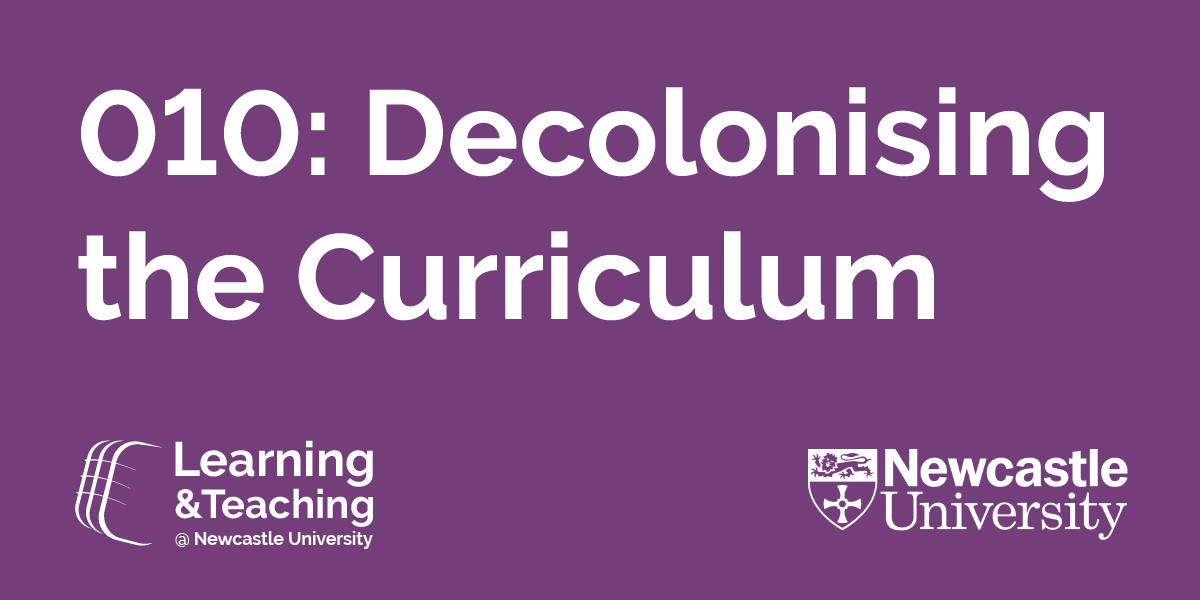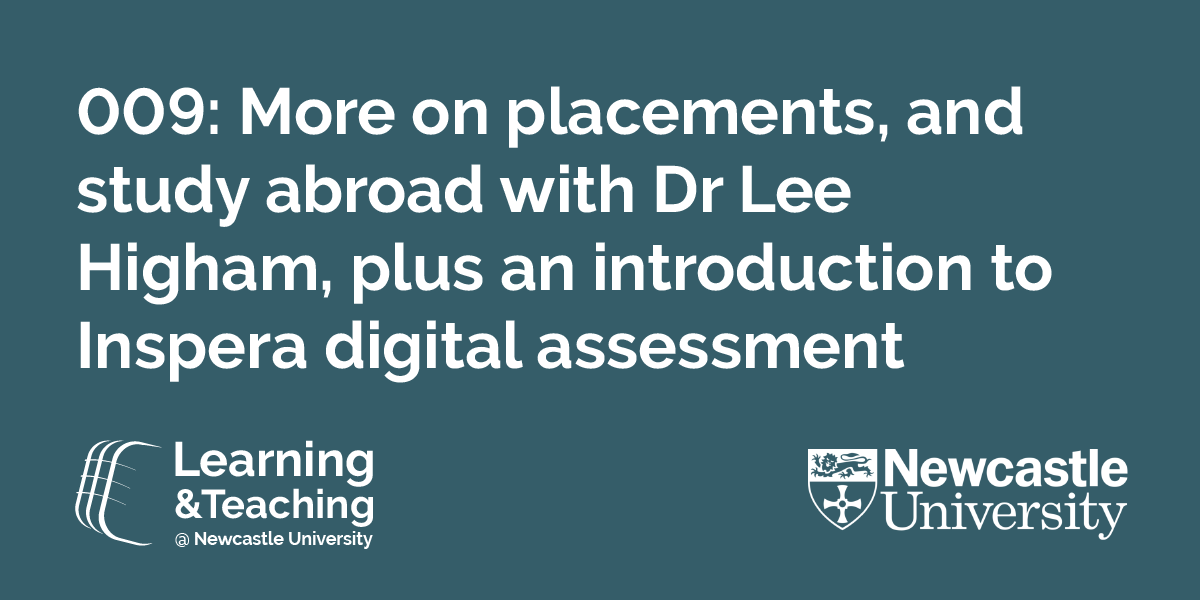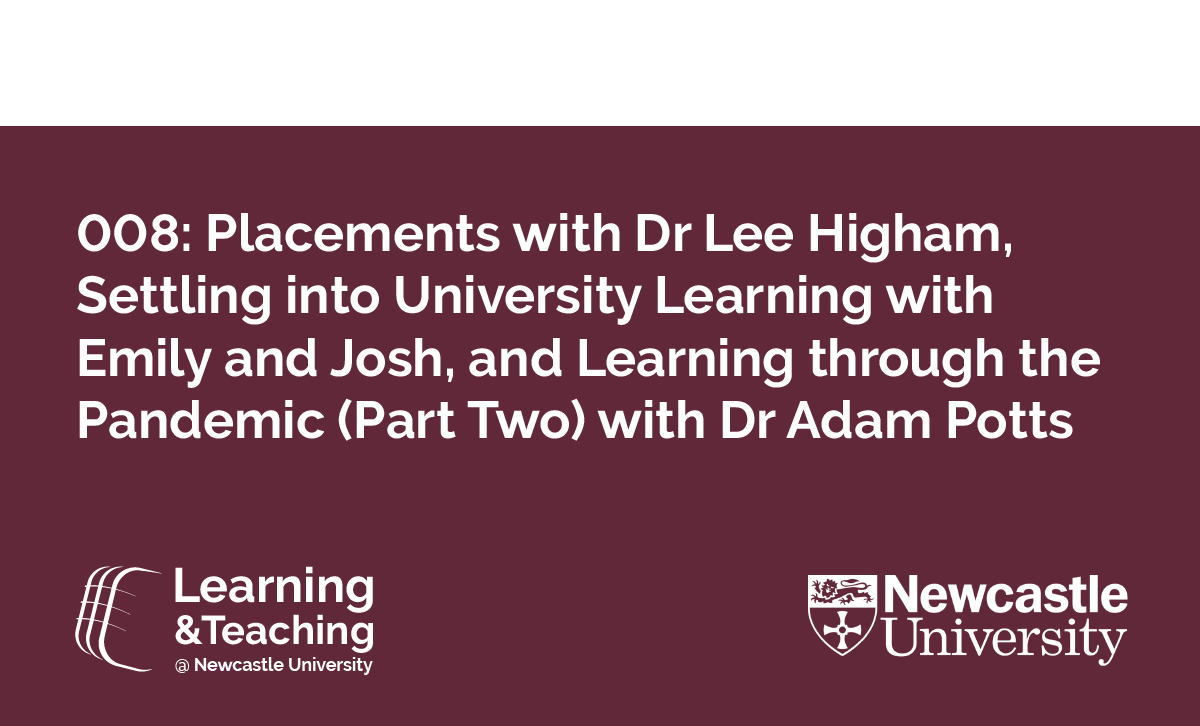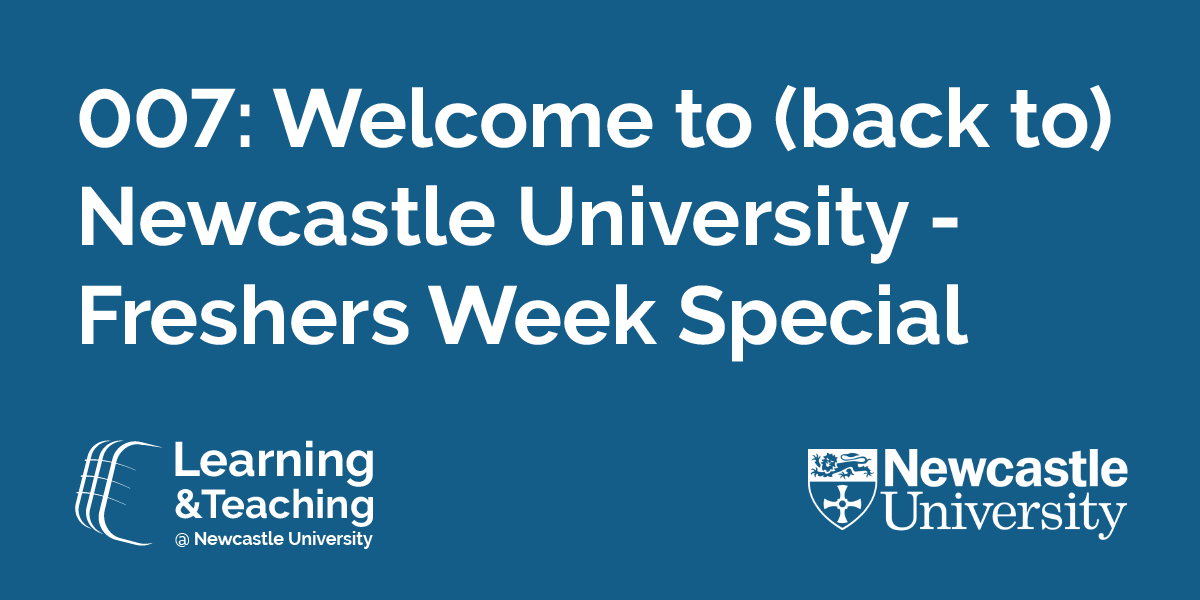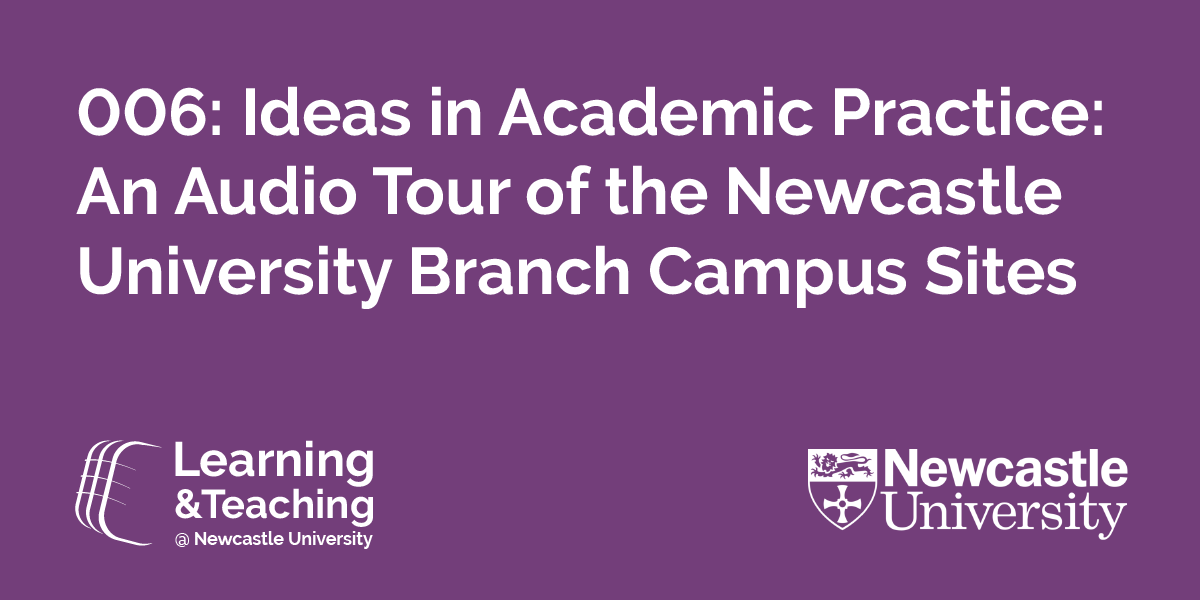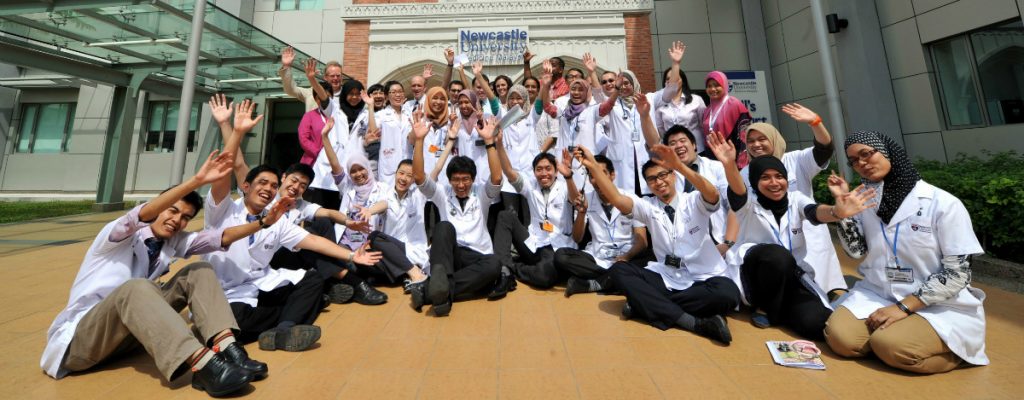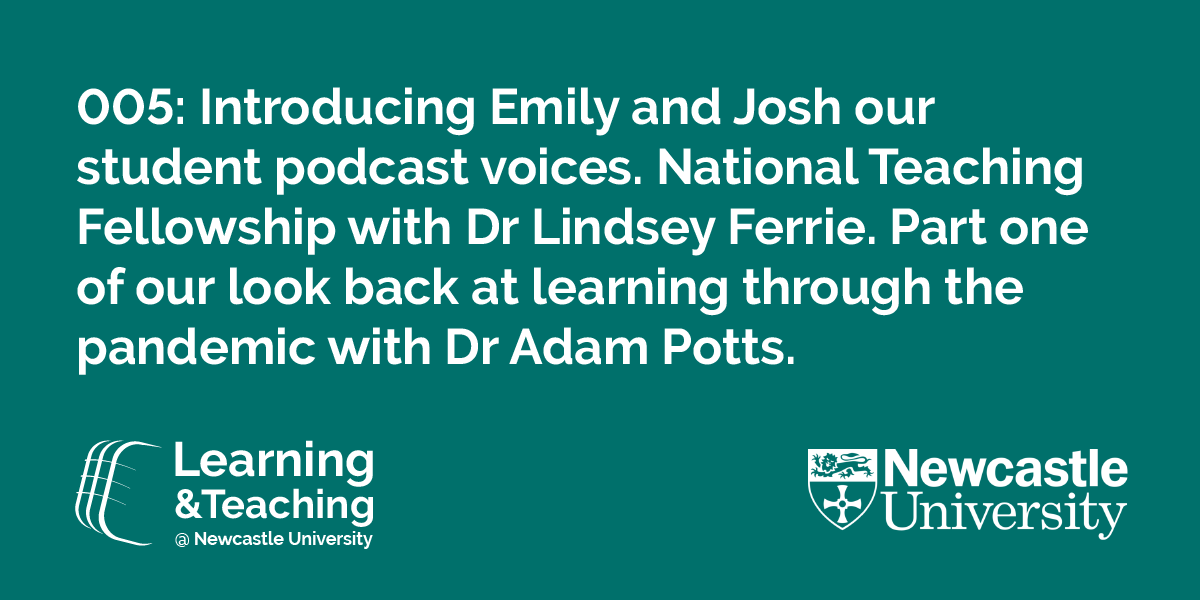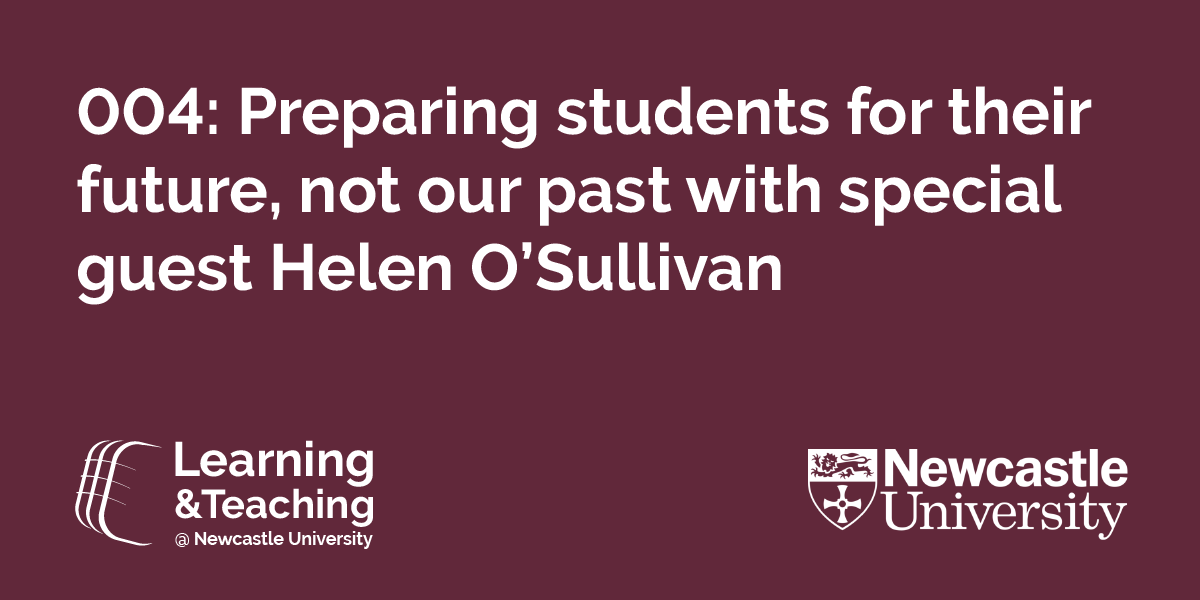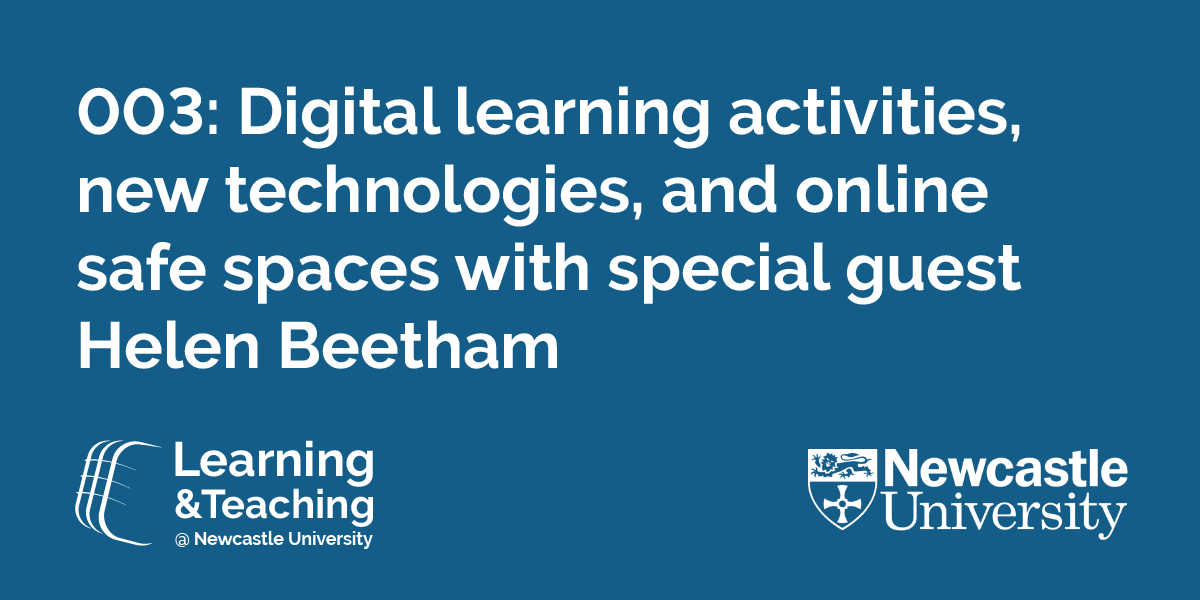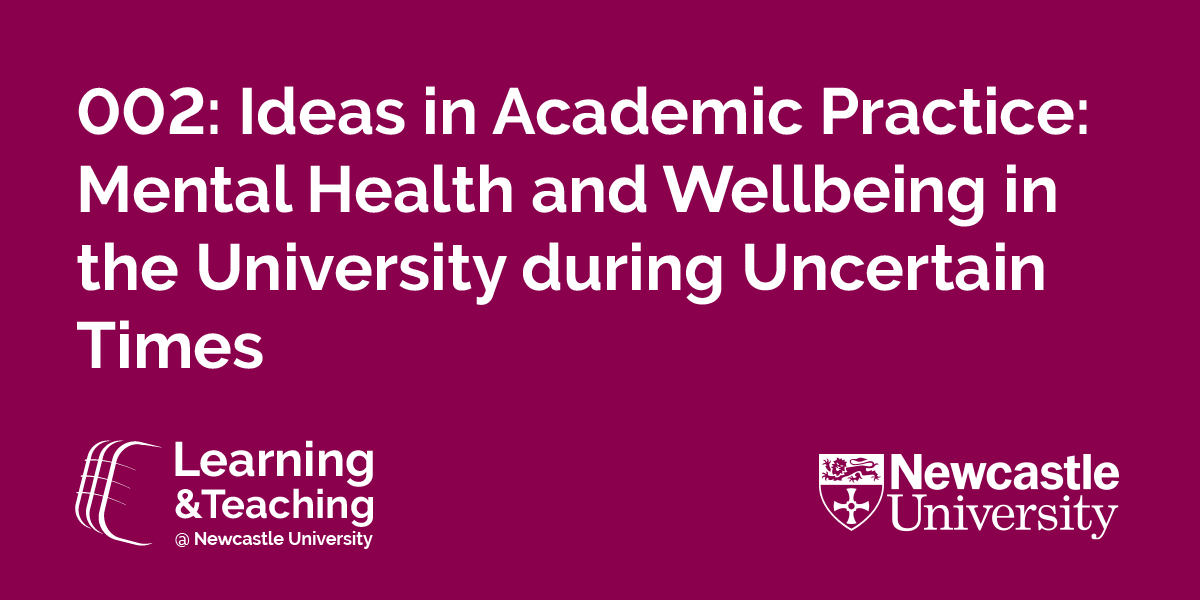Podcast: Play in new window | Download
Listen and Subscribe Apple Podcasts | Spotify |
In this episode Dr Paul Fleet (Chair of the Academic Progress Board of Studies at Newcastle University) and Michael Atkinson (Lecturer in Medical Education and Mindfulness Teacher at Newcastle University) talk about how we can best integrate mental health and wellbeing into our daily lives in ways that can enhance our working practices and beyond.
There is a transcript available.
This discussion point, taken from the meeting of the Academic Progress Board on 18th March 2021, recognises that mental health and wellbeing in academic practice is not only increasingly important as a topic of conversation in HE, but is fundamentally important to our pedagogic development as an academic community. This podcast is for anyone involved in higher education (staff and students) and makes reference to research-driven ideas and practice to encourage a community of supportive wellbeing, including the power of a smile!
This is the first of a set of podcasts developed from the meetings of the Academic Progress Board of Studies and for more information on the work and support of the Academic Progress Team please contact: apt.lts@newcastle.ac.uk or visit https://www.ncl.ac.uk/ltds/professional/
References
There is a transcript available.
Houghton, A–M. & Anderson, J. (2017) Embedding mental wellbeing in the curriculum: maximising success in higher education. York: Higher Education Academy
Bok, D. C. (2010) The politics of happiness: what government can learn from the new research on well-being. Oxford: Princeton University Press
Byrom, N. (2018). Academic Perspective: Research gaps in student mental health [Online] What Works Wellbeing https://whatworkswellbeing.org/blog/academic– perspective–research–gaps–in–student–mental–health/
Csikszentmihalyi, M. (2013). Creativity: The psychology of discovery and invention. New York: Harper Perennial Modern Classics
De Graaf, J. (2012) What’s the economy for, anyway?; why it’s time to stop chasing growth and start pursuing happiness. New York: Bloomsbury Press
Farmer, P. & Stevenson, D. (2017). Thriving at Work. London: gov.uk https://www.gov.uk/government/publications/thriving–at–work–a–review–of–mental–health–and–employers
Harding, S., Morris, R., Gunnell, D., Ford, T., Hollingworth, W., Tilling, K., Evans, R., Bell, S., Grey, J., Brockman, R., Campbell, R., Araya, R., Murphy, S. & Kidger, J. (2019), ‘Is teachers’ mental health and wellbeing associated with students’ mental health and wellbeing?’, Journal of Affective Disorders, vol. 253, pp. 460–46
House of Commons Library (2019). Support for students with mental health issues in higher education in England. London: UK Commons Library, pp.1–16
Houghton, A. M. & Anderson, J. (2017) Embedding mental wellbeing in the curriculum: maximising success in higher education. York: Higher Education Academy
Hughes, G., Panjwani, M., Tulcidas, P., Byrom, N. (2018). Student mental health: The role and responsibilities of academics. Oxford: Student Minds
Hughes, G. & Spanner, L. (2019) The University Mental Health Charter. Leeds: Student Minds
McAllister, M., Wynaden, D., Happell, B., Flynn, T., Walters, V., Duggan, R., Byrne, L., Heslop, L. & Gaskin, C. (2014). Staff experiences of providing support to students who are managing mental health challenges: A qualitative study from two Australian universities. Advances in Mental Health, 12(3) pp 192–201
Mind (2020) Mental health charity Mind finds that nearly a quarter of people have not been able to access mental health services in the last two weeks [online] https://www.mind.org.uk/news-campaigns/news/mental-health-charity-mind-finds-that-nearly-a-quarter-of-people-have-not-been-able-to-access-mental-health-services-in-the-last-two-weeks/
Morrish, L. (2019). Pressure Vessels: The epidemic of poor mental health among higher education staff. London: HEPI. https://www.hepi.ac.uk/wp–content/uploads/2019/05/HEPI–Pressure–Vessels–Occasional–Paper–20.pdf
Oswald A. J., Proto, E. & Sgroi, D. (2015) Happiness and productivity. Journal of Labor Economics, 33 (4). pp. 789–822.
Roozendaal B., McEwen B.S., Chattarji S. (2009) Stress, memory and the amygdala. Nature Reviews Neuroscience.10(6):423-33
Rothenberg, A. (2006). Creativity—the healthy muse. The Lancet, 368 Special Issue, S8–S9 DOI: https://doi. org/10.1016/S0140–6736(06)69905–4
Salimzadeh, R., Saroyan, A. & Hall, N.C. (2017) Examining the Factors Impacting Academics’ Psychological Well– Being: A Review of Research. International Education Research. 5(1), pp 13–44. DOI: 10.12735/ier.v5n1p13
Seldon, A. & Martin, A. (2017) The Positive and Mindful University. Higher Education Policy Institute
Staw, B. M., Sutton R. & Pelled L. H. (1994) ‘Employee Positive Emotion and Favorable Outcomes in the Workplace’, Organisational Science 5: pp 51–71
Thorley, C. (2017). Not By Degrees: improving student mental health in the UK;’s universities. London: IPPR https:// www.ippr.org/research/publications/not–by–degrees
The University Mental Health Charter (nd) Planning For a sustainable future: the importance of university mental health in uncertain times
Universities UK (2020) StepChange: Mentally Healthy Universities [online] https://www. universitiesuk.ac.uk/stepchange-mhu Worsley, J., Pennington, A. & Corcoran, R. (2020) What interventions improve college and university students’ mental health and wellbeing? A review of review–level evidence. London: What Works Centre for Wellbeing

